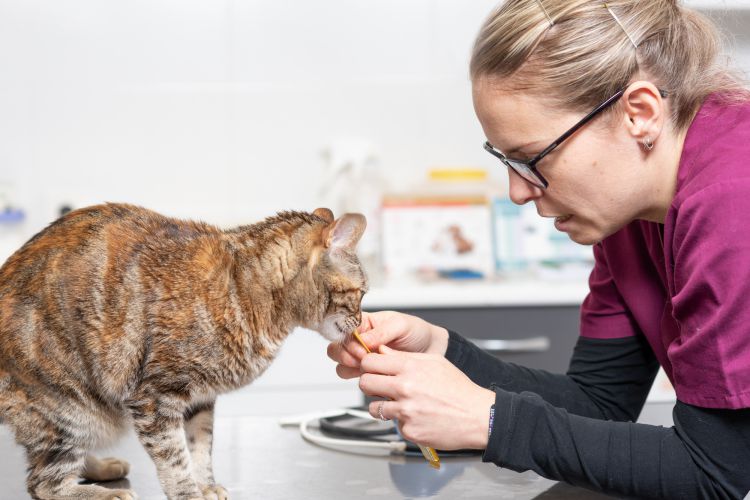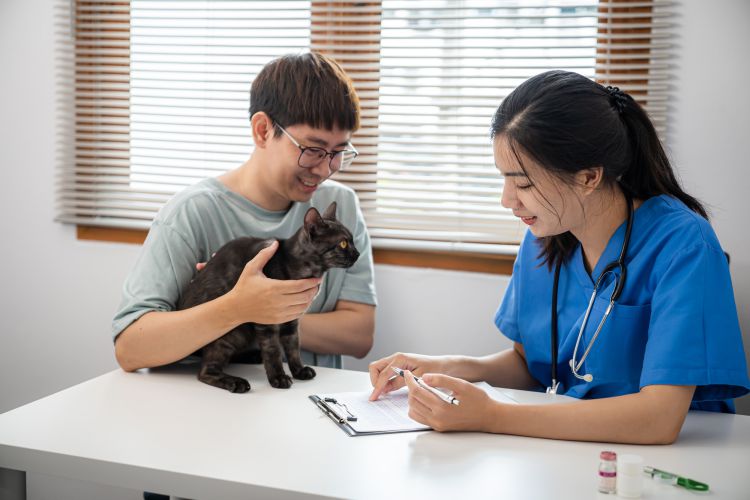 Cats are playful animals and wonderful companions at home. Sometimes, you may notice gloominess and lack of energy if they’re unwell. Seeing your feline friend sick can be devastating since they may be aggressive or keep to themselves.
Cats are playful animals and wonderful companions at home. Sometimes, you may notice gloominess and lack of energy if they’re unwell. Seeing your feline friend sick can be devastating since they may be aggressive or keep to themselves.
It’s important to find ways to care for your cat and help them recover fully at home. It’s all about creating a clean, comfortable, and stress-free environment that’ll help ensure your cat gets well quickly. With that in mind, below are seven tips for caring for a sick cat:
1. Consider Light Therapy
You can use light therapy to assist with some of your cat’s pain or other health issues. It’s still a relatively new treatment method, but the research on its use on humans and other animals has shown tremendous results.
Light therapy uses various wavelengths to address a cat’s problems, like persistent pain, surgical blemishes, skin problems, inflammation, and joint issues. There are usually two types of light therapy: red light and infrared. The latter can permeate the cat’s skin further compared to red light, thereby ensuring the cat has more clinical advantages.
Indeed, light therapy works with cats and has been shown to help reduce pain, improve the immune system, decrease blood pressure, and enhance circulation. But as studies are still underway, it’d help to administer light therapy under your vet’s supervision and instruction. Your vet will check to see if it’ll work with the meds they want to give to your cat.
2. Take Your Cat To The Vet For Checkups
As your cat is recovering, it may start deteriorating even with medication and care. So, you must look for strange symptoms and act accordingly. For instance, if there’s a lack of appetite, throwing up, dysentery, wheezing, or inability to move, urinate, or defecate, take them to the vet for checkups.
Your cat may also not easily show discomfort symptoms, so taking them to the vet is your most prudent option. In addition, ensure you follow up with your veterinarian to guarantee your cat is fully healthy without any underlying health issues that need to be addressed.
 3. Give Your Cat Medicine
3. Give Your Cat Medicine
Follow the vet’s instructions and give your cat medicine as prescribed. Sticking to the dosage instructions helps ensure they get healed completely.
While at it, don’t buy over-the-counter medications without speaking to your veterinarian because you may not know whether they’re appropriate for your cat’s breed, age, and condition.
If your feline is having difficulty ingesting tablets, you can crush them and mix them with fluid to make it simple to take them.
4. Give Your Cat Nutritious Meals
Your cat needs to eat nutritious meals so it can recover quickly. Even though it may not feel like eating, try your best to give them food. Try feeding your cat high-quality wet food or a prescription diet recommended by your veterinarian.
On top of this, ensure you also provide fresh water for them because they need to stay hydrated to have enough body fluids, which are critical in the healing process. If your cat isn’t drinking enough, you may need to offer water in a syringe. Contact your veterinarian for advice if your cat isn’t eating or drinking.
5. Groom Your Cat
Cleanliness is essential, especially when your cat is sick. They may neglect to groom. So, ensure you brush them once daily, sterilize wounds, and wipe their stool. It can help minimize infection and odor. If they have a runny nose, clean them with damp, heated fabric.
6. Make Your Cat Comfortable
If your feline friend is unwell, do your best to ensure it’s comfortable. You can make its resting bed cozy with its favorite blanket for it to enjoy its quiet time. You can also place its litter box next to the area. Just ensure you allow your cat ample time to take their rest. When a cat is sick, it may be weak, lethargic, and not move around much.
You may also want to provide a heating pad to help soothe sore muscles. If you have other pets in the household, keep your sick cat away from them to prevent the spread of illness.
7. Provide Mental Stimulation
Even when sick, your cat needs mental stimulation to ensure they’re physically and psychologically healthy. Provide your cat with toys like puzzle feeders to keep its mind active. You can also play with your cat if it’s up for it. Only ensure they don’t get very exhausted.
Conclusion
Caring for a sick cat requires patience, diligence, and attention to detail. Your winning point is employing evidence-based treatment methods. By no means should you practice trial and error on your sick cat. Consult your vet for sound advice on the most appropriate treatment strategy for your cat’s condition. With proper treatment, your feline friend will eventually jump back to normalcy, and you’ll enjoy your time with them.




